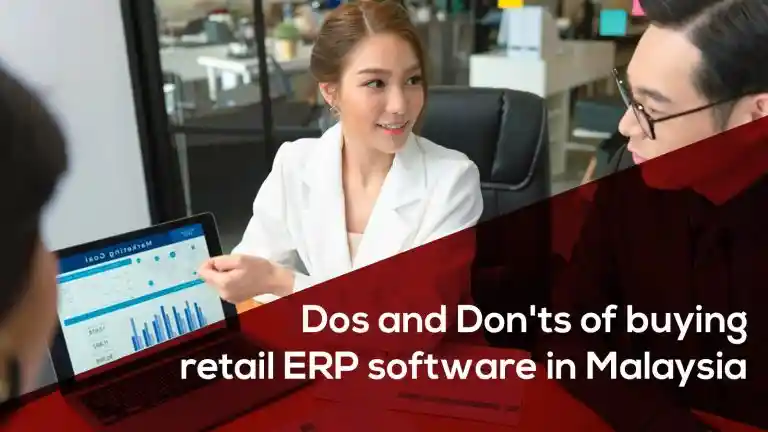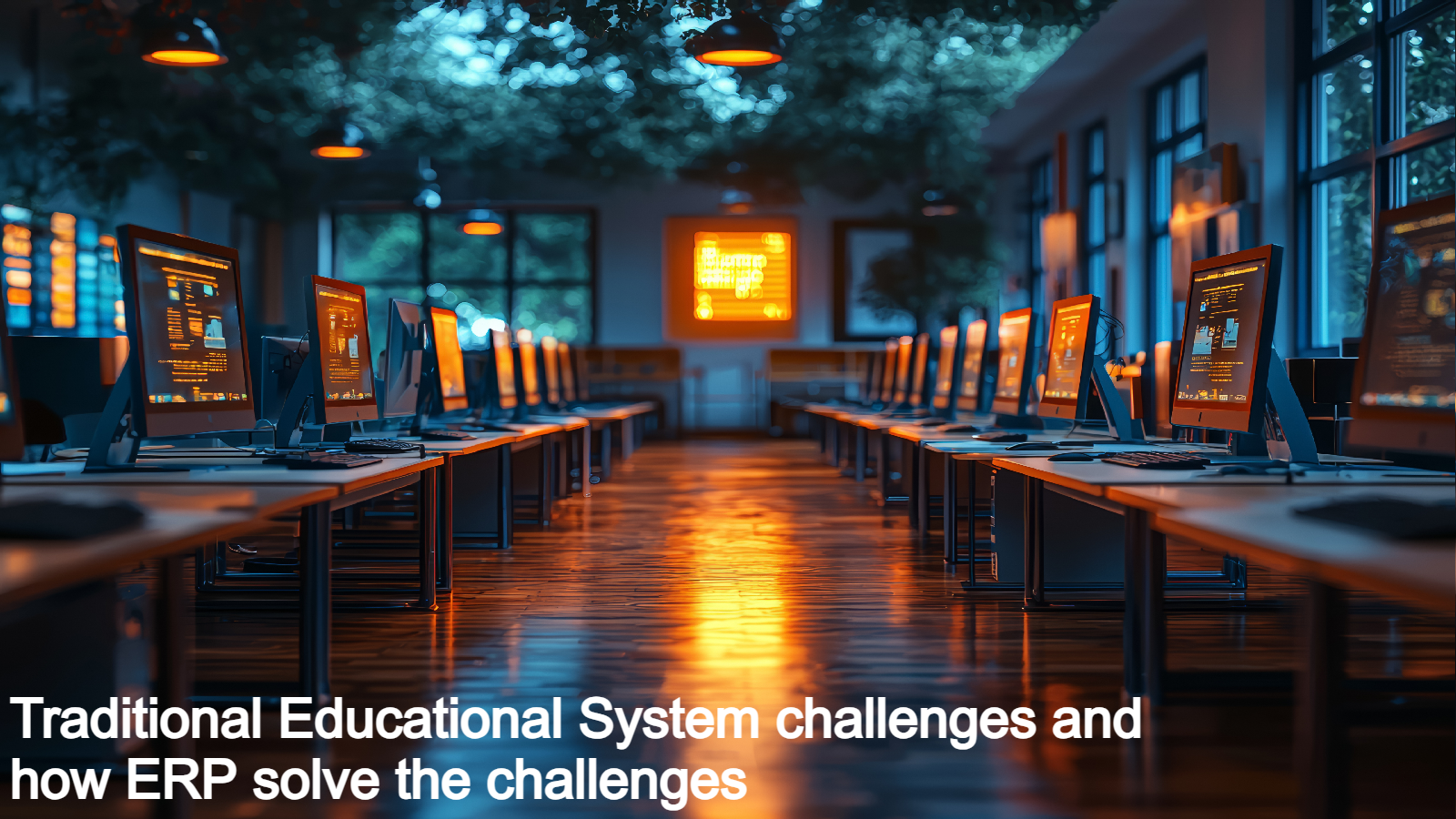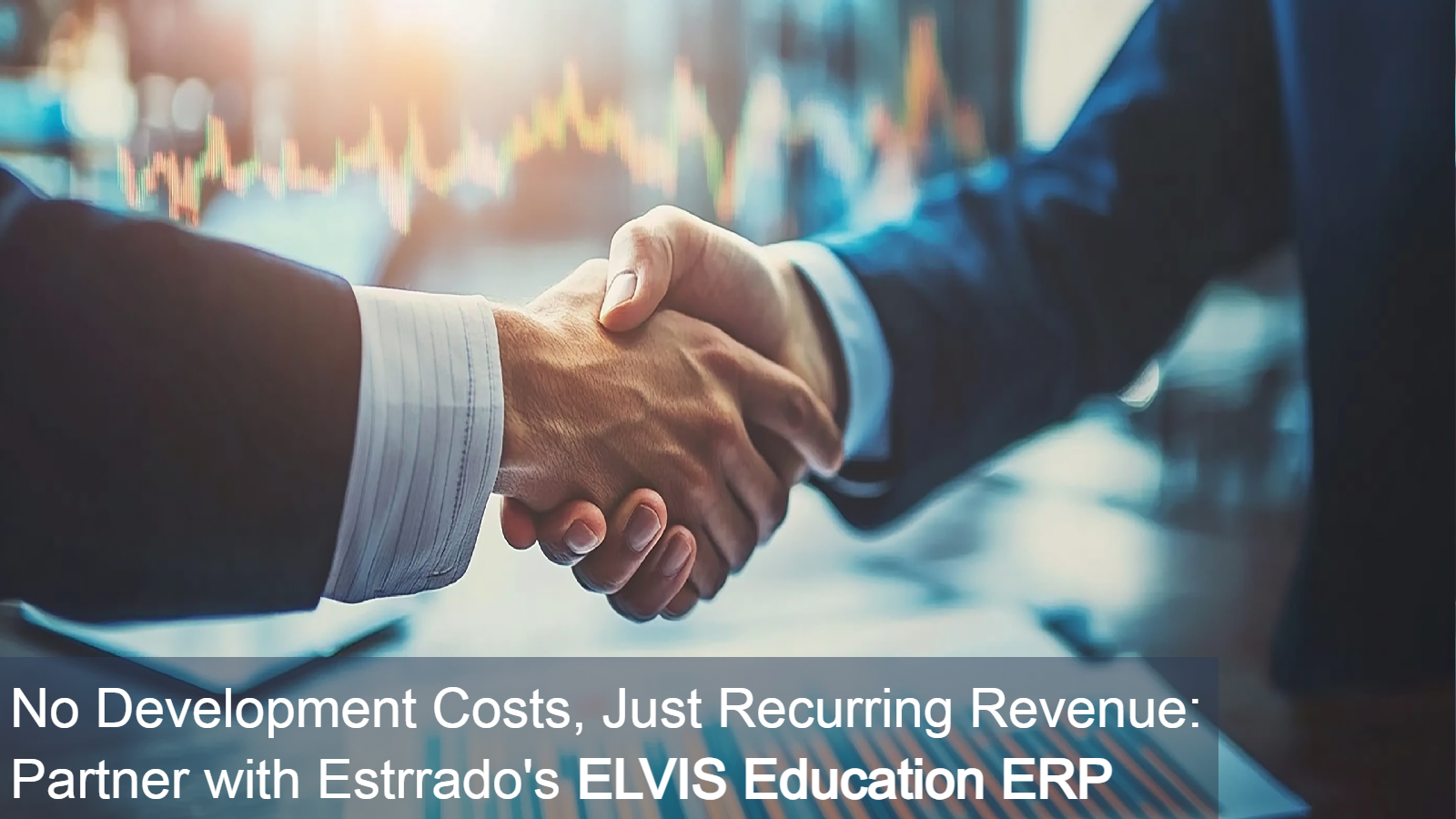Introduction
In the world of retail, staying ahead requires more than just offering quality products or services. The backbone of a successful retail operation is the efficiency and integration of its systems. As Malaysia continues to embrace digital transformation, selecting the right Enterprise Resource Planning (ERP) software becomes crucial for retailers looking to streamline their operations and enhance overall business performance.
In this blog post, we’ll delve into the Dos and Don’ts of buying retail ERP software in Malaysia.
Understanding Your Retail Needs
Do: Start by identifying your specific business needs. Every retail operation is unique, and understanding the ins and outs of your business is the first step towards making an informed decision. Consider factors such as the size of your business, the complexity of your operations, and the scalability you might require in the future.
Don’t: Fall into the one-size-fits-all trap. Avoid ERP solutions that claim to cater to all industries without addressing the specific requirements of a retail business. A tailored approach ensures that the software aligns seamlessly with your daily operations.
Comprehensive Feature Assessment
Do: Prioritize features that directly impact your retail operations. Look for functionalities such as inventory management, point-of-sale integration, order processing, and customer relationship management. A comprehensive set of features ensures that your ERP system can grow with your business.
Don’t: Get persuaded by unnecessary features. While certain things might seem appealing, they can complicate your system and lead to unnecessary costs. Stick to features that align with your business goals and contribute to operational efficiency.
Scalability for Future Growth
Do: Invest in an ERP system that can scale alongside your business. As your retail venture expands, your software should seamlessly adapt to the increasing demands of your operations. Scalability is essential for long-term success.
Don’t: Overlook the future. Opting for a solution that meets your current needs but lacks scalability might lead to a costly and time-consuming migration down the road. Choose wisely to save both time and resources.
User-Friendly Interface
Do: Prioritize user-friendliness. A user-friendly interface ensures that your staff can quickly adapt to the new system, reducing the learning curve. Look for intuitive designs that enhance efficiency rather than hinder it.
Don’t: Sacrifice usability for advanced features. Complicated interfaces can lead to resistance from your staff, hindering the adoption of the new ERP system. Strive for a balance between functionality and ease of use.
Integration Capabilities
Do: Ensure seamless integration with existing systems. Your ERP software should act as a cohesive force, integrating with other tools and platforms used in your retail operations.
Don’t: Ignore integration capabilities. Incompatibility between systems can lead to data discrepancies, inefficiencies, and communication barriers. Prioritize a solution that fosters collaboration among different aspects of your business.
Vendor Reputation and Support
Do: Research the reputation of ERP vendors thoroughly. Look for reviews, testimonials, and case studies from other retailers who have implemented the same software. A reliable vendor with a proven track record is a valuable partner for your business.
Don’t: Neglect ongoing support. Even the most robust ERP systems may encounter issues. Ensure that the vendor provides responsive support and regular updates to address any challenges that may arise during the implementation and usage phases.
Cost Analysis and Return on Investment (ROI)
Do: Conduct a comprehensive cost analysis. Beyond the initial purchase cost, consider factors such as implementation, training, and ongoing maintenance. Calculate the potential ROI by assessing the efficiency gains and cost savings the ERP system can bring to your retail operations.
Don’t: Focus solely on upfront costs. While budget constraints are crucial, a myopic approach may lead to choosing a suboptimal solution. Consider the long-term benefits and savings to make an informed investment.
Security Measures
Do: Prioritize data security. Retail operations deal with sensitive customer information, and a robust ERP system should have stringent security measures in place. Encryption, access controls, and regular security updates are non-negotiable.
Don’t: Compromise on security. A data breach can have severe consequences for your business, including financial losses and damage to your reputation. Choose a solution that prioritizes the protection of your business and customer data.
Conclusion
Selecting the right retail ERP software in Malaysia is a strategic decision that can significantly impact the efficiency and success of your business. By adhering to the dos and don’ts outlined in this guide, you’ll be better equipped to make an informed choice that aligns with your unique retail needs. Remember, the right ERP system is a catalyst for growth and innovation in the competitive landscape of Malaysian retail.
Frequently Asked Questions (FAQs)
Why is it essential for a retail business in Malaysia to invest in ERP software?
Enterprise Resource Planning (ERP) software is crucial for retail businesses in Malaysia due to its ability to streamline operations, enhance efficiency, and provide a centralized platform for managing various aspects of the business. It helps in integrating functions like inventory management, order processing, and customer relationship management, leading to improved decision-making and overall business performance.
How can I determine the specific needs of my retail business before choosing an ERP system?
To identify your business needs, start by assessing the size of your operation, the complexity of your processes, and your future scalability requirements. Conduct a thorough analysis of your current workflow and pinpoint areas where automation and integration can bring the most significant benefits. Consulting with key stakeholders and department heads can also provide valuable insights.
What features should I prioritize when evaluating retail ERP software for my business in Malaysia?
Key features to prioritize include inventory management, point-of-sale integration, order processing, and customer relationship management. These features directly impact retail operations, ensuring smooth transactions, accurate inventory tracking, and effective customer engagement. Look for a comprehensive set of features that align with your business goals and requirements.
How important is scalability in choosing an ERP system for a retail business in Malaysia?
Scalability is paramount for long-term success. As your retail business grows, your ERP system should seamlessly adapt to increasing demands. Choosing a scalable solution ensures that you won’t outgrow your software quickly, saving time and resources associated with future migrations or system replacements.
What role does a user-friendly interface play in the successful implementation of ERP software for a retail business?
A user-friendly interface is crucial for the successful adoption of ERP software. It reduces the learning curve for your staff, leading to quicker and smoother implementation. Prioritize intuitive designs that enhance user experience without compromising on the functionality required for your specific retail operations.
How can I ensure that the ERP software integrates seamlessly with existing systems in my retail business?
Before making a decision, inquire about the integration capabilities of the ERP software. Ensure that it can integrate seamlessly with other tools and platforms used in your retail operations, such as accounting software, eCommerce platforms, and customer relationship management tools.
Why is the reputation of ERP vendors important, and how can I assess it?
The reputation of ERP vendors is crucial as it reflects their reliability and commitment to customer satisfaction. Research vendor reviews, testimonials, and case studies to gauge their track record. Look for vendors with a proven history of successful implementations in the retail sector, as this indicates their understanding of industry-specific needs.
What ongoing support should I expect from an ERP vendor after the software is implemented?
Ongoing support is vital for the smooth functioning of your ERP system. Ensure that the vendor provides responsive customer support and regular updates. This support should include troubleshooting, addressing software issues, and keeping the system up-to-date with the latest features and security measures.
How should I approach the cost analysis of implementing ERP software for my retail business in Malaysia?
Conduct a comprehensive cost analysis that goes beyond the initial purchase cost. Consider implementation, training, and ongoing maintenance costs. Calculate the potential Return on Investment (ROI) by assessing the efficiency gains and cost savings the ERP system can bring to your retail operations over the long term.
Why is data security important in the context of retail ERP software, and how can I ensure it?
Data security is paramount for retail businesses dealing with sensitive customer information. Choose an ERP system with robust security measures, including encryption, access controls, and regular security updates. Prioritize the protection of your business and customer data to prevent potential financial losses and damage to your reputation.








